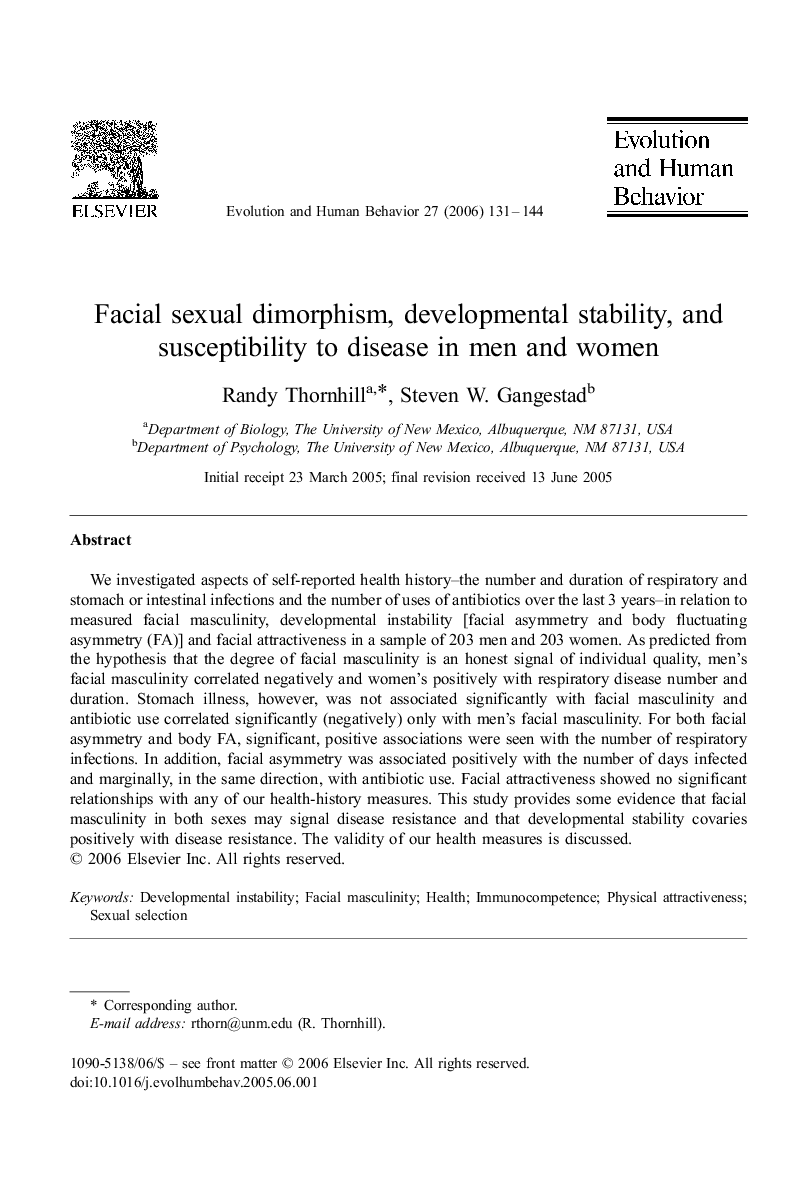| Article ID | Journal | Published Year | Pages | File Type |
|---|---|---|---|---|
| 943614 | Evolution and Human Behavior | 2006 | 14 Pages |
We investigated aspects of self-reported health history–the number and duration of respiratory and stomach or intestinal infections and the number of uses of antibiotics over the last 3 years–in relation to measured facial masculinity, developmental instability [facial asymmetry and body fluctuating asymmetry (FA)] and facial attractiveness in a sample of 203 men and 203 women. As predicted from the hypothesis that the degree of facial masculinity is an honest signal of individual quality, men's facial masculinity correlated negatively and women's positively with respiratory disease number and duration. Stomach illness, however, was not associated significantly with facial masculinity and antibiotic use correlated significantly (negatively) only with men's facial masculinity. For both facial asymmetry and body FA, significant, positive associations were seen with the number of respiratory infections. In addition, facial asymmetry was associated positively with the number of days infected and marginally, in the same direction, with antibiotic use. Facial attractiveness showed no significant relationships with any of our health-history measures. This study provides some evidence that facial masculinity in both sexes may signal disease resistance and that developmental stability covaries positively with disease resistance. The validity of our health measures is discussed.
